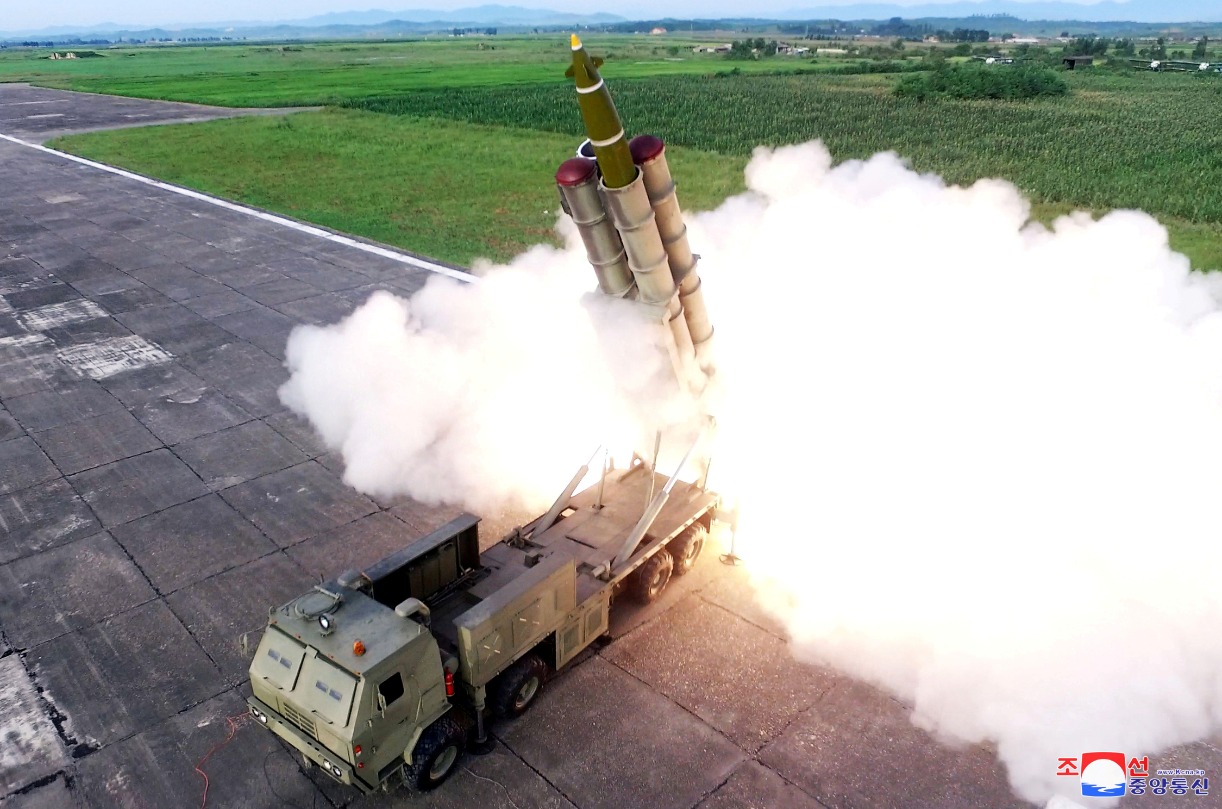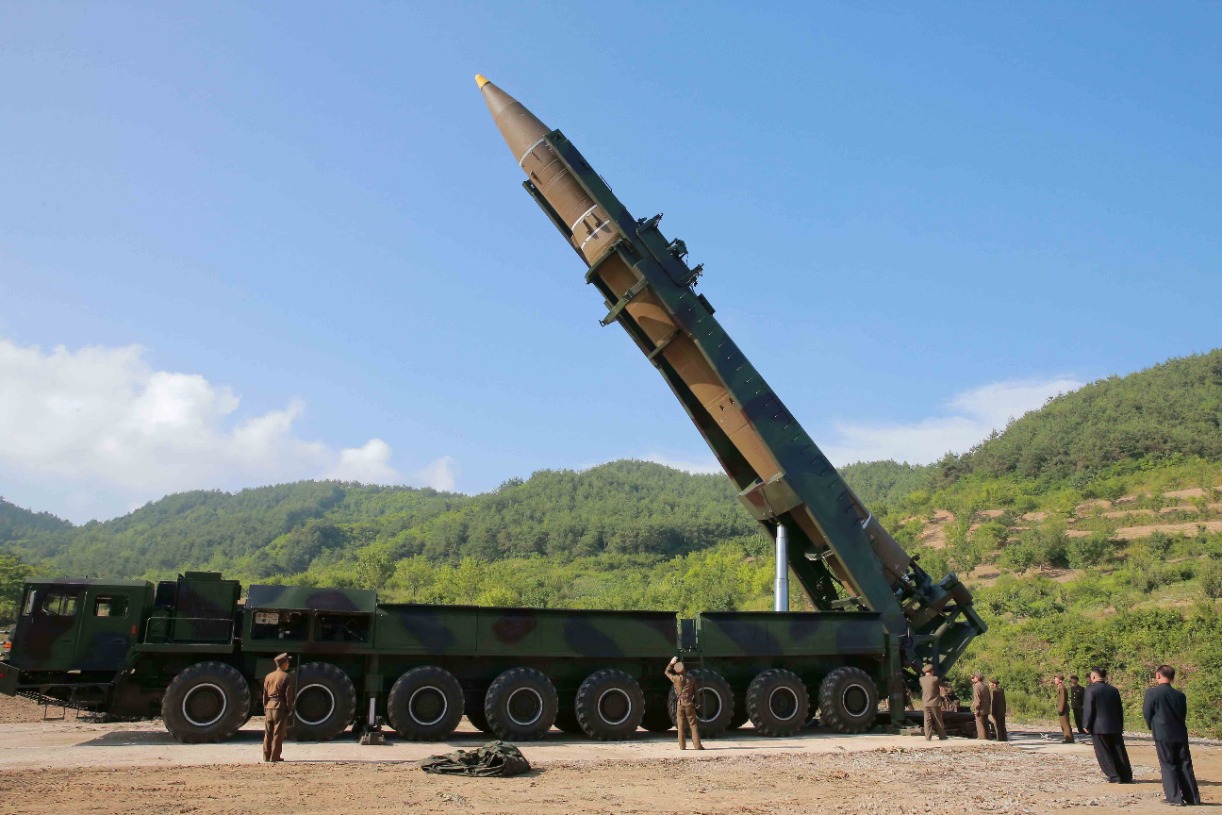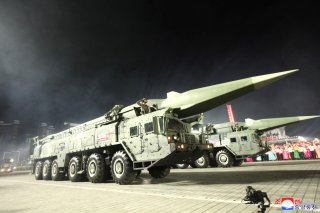No Easy Answers: America's Limited Choices in Dealing with North Korea
The U.S. has no carrot that North Korea wants more than its nuclear weapons and no stick it fears more than a world without them.
Whoever occupies the White House in 2025 will find North Korea is still the land of no good options. Physically destroying the North Korean nuclear program is impractical and fraught with risk. While the U.S. does have many means of causing Pyongyang discomfort and many boons in which Kim is interested, these have thus far failed to convince Kim to give up his nuclear weapons, and this is unlikely to change in the future. The U.S. has no carrot that North Korea wants more than its nuclear weapons and no stick it fears more than a world without them.

This leaves any American president with three basic options. The first would be some variation on strategic patience shelving the problem, refusing to reduce the pressure on Pyongyang until it complies, and waiting for some change in North Korea’s government that makes it more willing to change policy. The phrase is associated with the Obama administration, but it is perhaps also a decent description of Trump’s treatment of the issue following the failure of the Hanoi Summit.
Past presidents have been unwilling to accept North Korea’s nuclear weapons, and North Korea has been reluctant to give them up. Faced with this inevitable impasse, most American leaders simply ignore the problem.
The second option would be to accept that nothing can be done to separate Kim from his nuclear weapons and to wring as many concessions from Pyongyang as possible in exchange for a formal acceptance of this fact. For example, in exchange for sanctions relief, the U.S. could seek a commitment that North Korea will not expand its nuclear program, that it will give up its existing nukes at some nebulous future date, that it will halt its intercontinental ballistic missile (ICBM) tests, and finally that it will stop launching military provocations of the South.
It is an open question whether Kim would be willing to make such a deal, or if he would keep it once made, but even securing some of these concessions would be helpful.
Third, the next American president can opt for a version of Trump’s fire and fury policy. This would involve using all means at America’s disposal short of war to pressure North Korea into giving up its nuclear weapons. Such a policy is almost certain to fail. North Korea has already survived almost complete isolation from the world during the COVID-19 pandemic.
Without an invasion, the U.S. probably cannot confront Kim with anything more dangerous than a world without nuclear weapons. Furthermore, the more America threatens him, the more we remind him why he sacrificed so many lives to build them in the first place.
Harris is most likely to adopt strategic patience out of sheer inertia. She has not indicated that North Korea will be a priority. Making the major changes that would be needed to accept North Korean nuclear weapons would require a large investment of political capital and leadership involvement. And, while strategic patience is often maligned as a failed policy, it has its advantages.
While it precludes any breakthrough with Pyongyang, it also communicates to other would-be proliferators that the cost of a nuclear program is at the very least ostracization from the world trading system. Few regimes are as willing as Kim’s to bear such costs. It also preserves American bargaining chips in the unlikely but not impossible event that Kim’s eventual successor sees the world differently. Finally, it will preserve the attention of Harris and her foreign policy team for issues that are more solvable and may prove more significant in the long run.

About the Author
Christian Curriden is a defense analyst at the RAND Corporation. His work at RAND has mostly focused on Chinese and Korean issues, especially PLA research and development, as well as artificial intelligence applications in the PLA. His research has also touched on proxy wars, the Chinese science and technology environment, and Chinese military interventions abroad. Outside of RAND, Christian has conducted research and published or presented papers on Chinese space capabilities and Chinese soft power in Hollywood.
Image Credit: KCNA/North Korean State Media.


